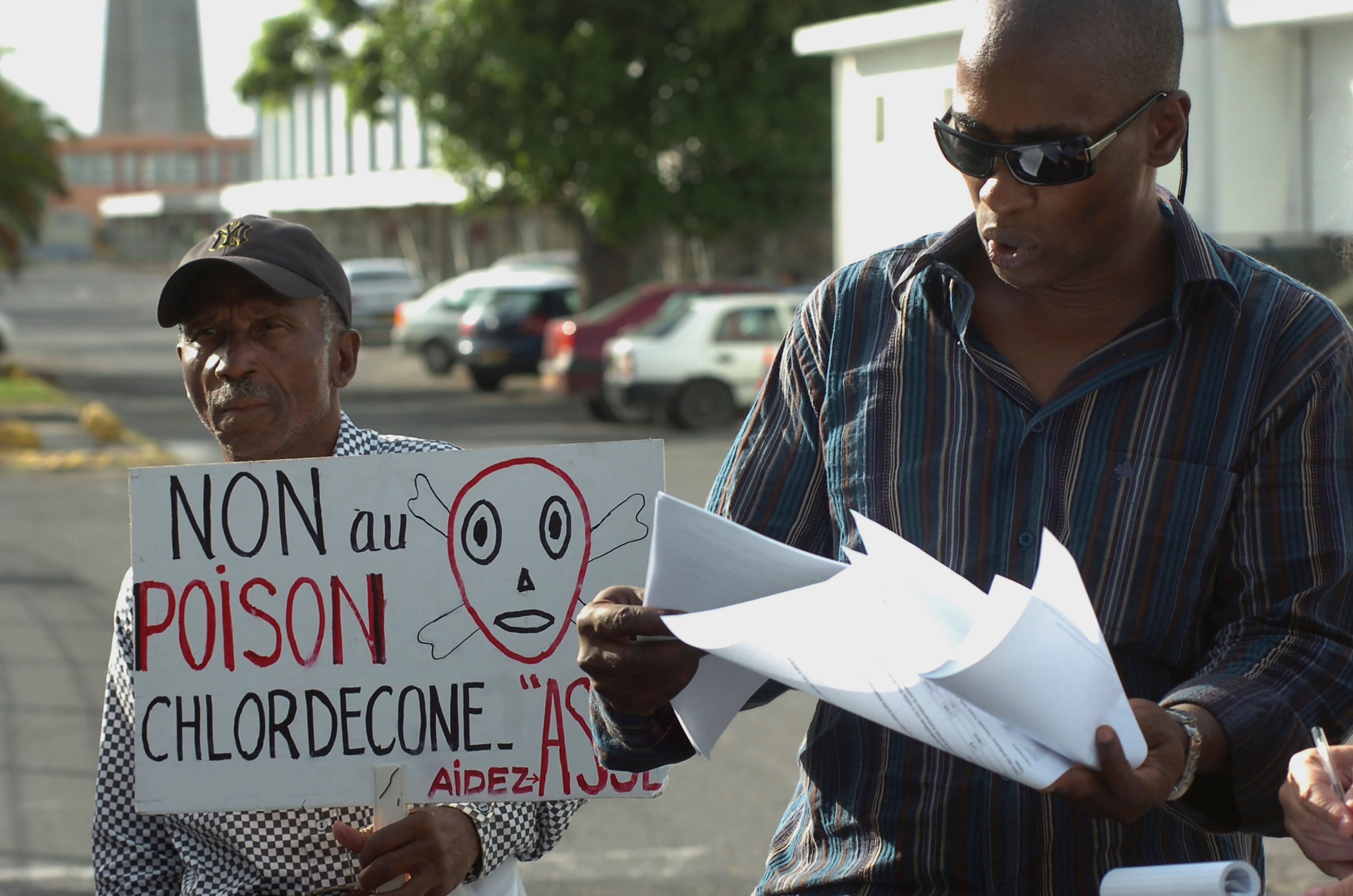Paris court deals blow to French Caribbean pesticide fight
A nearly 20-year fight to hold the French government criminally responsible for using a banned pesticide in the Caribbean islands of Martinique and Guadeloupe has received a serious blow

Your support helps us to tell the story
From reproductive rights to climate change to Big Tech, The Independent is on the ground when the story is developing. Whether it's investigating the financials of Elon Musk's pro-Trump PAC or producing our latest documentary, 'The A Word', which shines a light on the American women fighting for reproductive rights, we know how important it is to parse out the facts from the messaging.
At such a critical moment in US history, we need reporters on the ground. Your donation allows us to keep sending journalists to speak to both sides of the story.
The Independent is trusted by Americans across the entire political spectrum. And unlike many other quality news outlets, we choose not to lock Americans out of our reporting and analysis with paywalls. We believe quality journalism should be available to everyone, paid for by those who can afford it.
Your support makes all the difference.Nearly 20 years after Caribbean islanders sued to hold the French government criminally responsible for the banana industry’s extended use of a banned pesticide in Martinique and Guadeloupe, a panel of judges has dismissed their case, ruling that it’s too hard to determine who’s to blame for acts committed so long ago.
The judges in Paris described the use of chlordecone from 1973-1993 as a scandalous “environmental attack whose human, economic and social consequences affect and will affect for many years the daily life of the inhabitants” of the two French Caribbean islands. But they also asserted that even in the 1990s, scientists had not established links between chlordecone and illnesses in people.
“How dare they write such a historical and scientific untruth,” Christophe Lèguevaques, an attorney involved in the case, said in a statement issued Thursday.
Chlordecone, also known as kepone, was patented in the 1950s by scientists working for Allied Chemical, a U.S. company based in New Jersey now called Allied Corporation, and millions of pounds of the pesticide were produced, nearly all of it exported for use outside the United States.
The U.S. government banned the pesticide in 1976, a year after the Virginia health department permanently shut down a Life Science Products chemical plant in Hopewell, Va., whose workers developed slurred speech and other neurological problems blamed on the pesticide.
However, chlordecone was legally marketed in France from 1981 until the government banned it in 1990, and its use continued for three more years after that in Guadeloupe and Martinique to kill the banana weevil under an exemption granted by the French government. Decades later, it continues to contaminate the islands' soil and water.
The French government estimates that more than 90% of adults were exposed to chlordecone on both islands, whose combined populations total some 750,000 inhabitants. Among a variety of ailments, chlordecone is associated with an increased risk of prostate cancer, and these islanders suffer prostate cancer at among the highest rates in the world, French cancer researchers say. Other French research links chlordecone exposure to preterm births.
“It is unthinkable that those responsible die without being held accountable," Lèguevaques said, adding that he would urge his clients to appeal the Jan. 2 ruling by the national court for public health disputes.
Other plaintiffs in the 2006 case include the Paris-based environmental group Générations Futures, which also plans to appeal.
“This decision, although it represents a great disappointment, is not a surprise,” the group said in a statement Friday, vowing to continue representing those affected until "the truth comes out and justice is finally served.”
Ruling in June in a separate lawsuit filed by activists, organizations and victims, the central court in Paris found the French government guilty of wrongful negligence involving the use of chlordecone but denied compensation to those affected, a decision that outraged many. The judges ruled in part that the defendants did not provide specific details to justify “the damage of anxiety they claim.”
The legal saga is taking place in Paris instead of the overseas French departments of Guadeloupe or Martinique because it's a public health issue, so it is handled by a special health unit based within the central Paris court.
Meanwhile, officials continue testing the islanders for free to detect possible traces of chlordecone in their blood.
___
Associated Press news director Angela Charlton in Paris contributed.